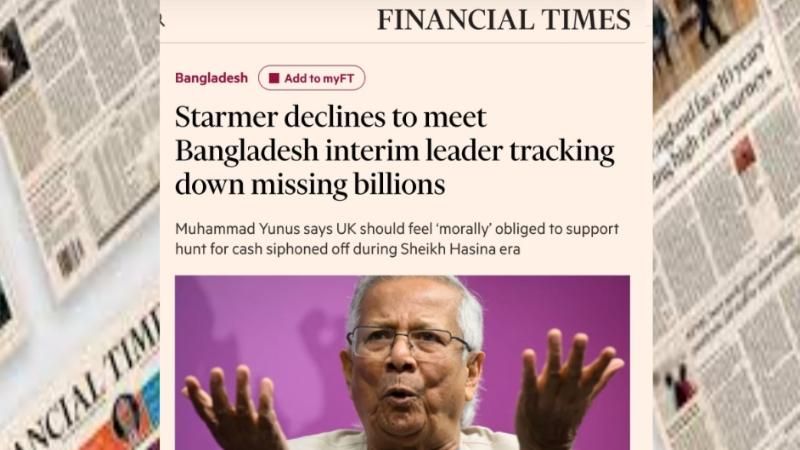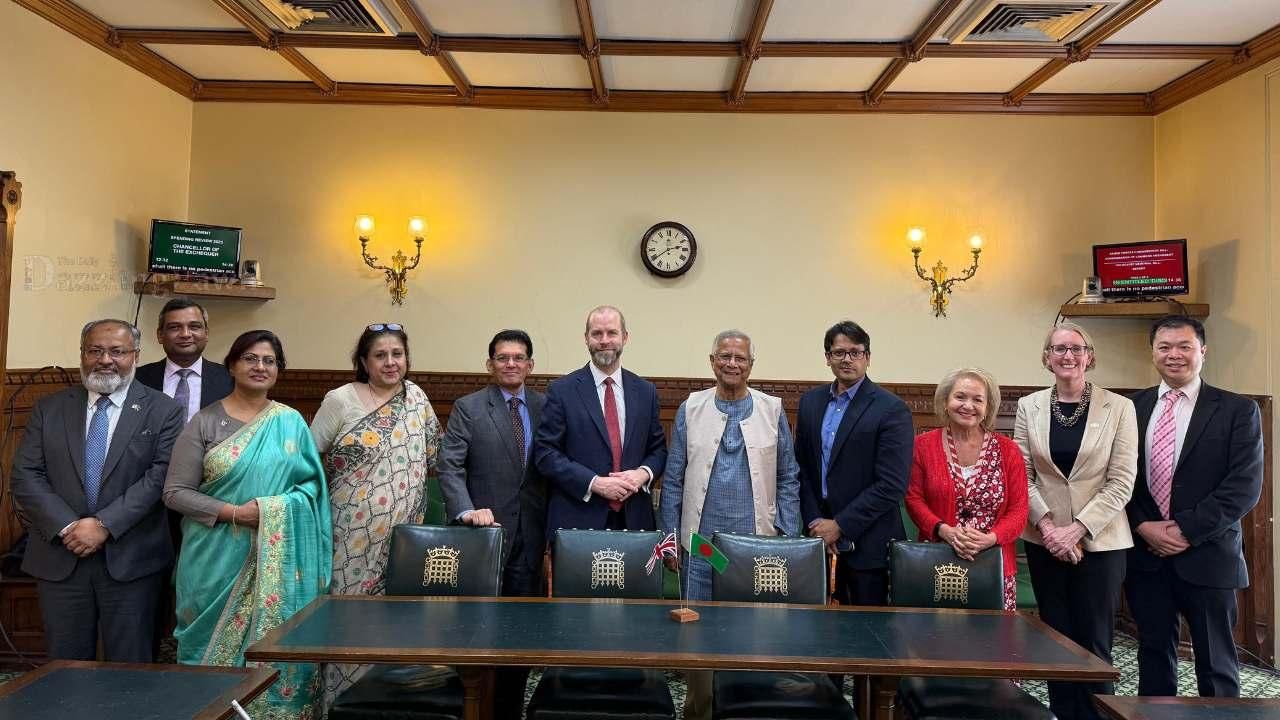Keir Starmer, leader of the Labour Party, has reportedly declined a meeting with Muhammad Yunus, the interim leader of Bangladesh, who is currently visiting the UK to garner support for recovering billions of dollars allegedly siphoned off during the era of former Prime Minister Sheikh Hasina.
The Financial Times article highlights that Muhammad Yunus, a Nobel Peace Prize laureate and interim leader of Bangladesh, is on a critical mission to rally international assistance in tracing and recovering significant sums of money that he claims were illicitly transferred out of Bangladesh under the previous regime.
Yunus, whose interim government assumed power recently following the tumultuous period after Sheikh Hasina's departure, is quoted as stating that the UK should feel "morally obliged" to support Bangladesh's efforts to track down the missing funds. This appeal underscores the gravity of the financial losses and the potential impact on Bangladesh's development and stability.
The article does not specify the reasons for Keir Starmer's decision to decline the meeting. However, such a refusal by a prominent opposition leader in the UK could be interpreted in various ways. It might suggest a cautious approach to engaging with a newly formed interim government, particularly concerning sensitive financial recovery efforts that could have complex political ramifications. Alternatively, it could simply be due to scheduling conflicts or a desire to avoid being drawn into what might be perceived as internal Bangladeshi political matters.
Muhammad Yunus's visit to the UK is significant as it signals his government's commitment to tackling corruption and illicit financial flows. The recovery of these "missing billions" would be a substantial boost to Bangladesh's economy and could bolster public trust in the new leadership. His emphasis on a "moral obligation" suggests a strong belief that countries like the UK, with their sophisticated financial systems, have a responsibility to assist in combating international financial crime, especially when it impacts developing nations.
The image accompanying the article shows Muhammad Yunus gesturing, suggesting a passionate appeal or explanation of the situation. The caption confirms his role as interim leader and his purpose in the UK.
This development comes at a sensitive time for Bangladesh, which is navigating a period of political transition and grappling with the economic aftermath of previous administrations. The international community's response to Yunus's appeals will be closely watched, as it could set a precedent for future cooperation in combating global financial crime and supporting governance in transitioning nations.
Further details are awaited regarding the specifics of the alleged financial siphoning, the estimated total amount, and the mechanisms by which Yunus's government intends to pursue the recovery of these funds. The declining of the meeting by Starmer, while not necessarily indicative of a lack of support, certainly adds a layer of complexity to Yunus's diplomatic efforts in the UK.








.svg)



